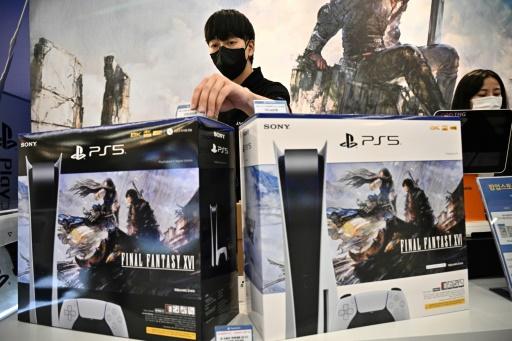
In response to the ongoing economic pressures exerted by U.S. tariffs, Sony has announced an increase in the price of its PlayStation 5 consoles in the United States. Starting Wednesday, the cost of the popular gaming system will rise by $50, marking a significant shift for consumers and the gaming industry.
The decision comes as companies grapple with the financial impact of tariffs imposed under former President Donald Trump’s administration, which have raised the cost of goods imported into the U.S. Sony, like many other global businesses, faces the dilemma of either passing these costs onto consumers or absorbing them to protect market share.
Sony’s Strategic Decision
Isabelle Tomatis, Vice President of Global Marketing at Sony Interactive Entertainment, explained the company’s position in a recent statement. “Similar to many global businesses, we continue to navigate a challenging economic environment,” she said. The price adjustments reflect Sony’s efforts to manage these economic challenges while maintaining its competitive edge in the gaming market.
The new pricing structure sets the standard PlayStation 5 at $550, the Digital Edition at $500, and the Pro version at $750. This move follows months of speculation after Sony hinted in May that price changes might be necessary, estimating potential tariff-related costs of approximately $680 million for the fiscal year.
Wider Industry Impact
Sony is not alone in facing these challenges. Other major companies are also adjusting their pricing strategies in response to the tariff landscape. Estee Lauder, a leading cosmetics company based in New York, has projected a $100 million impact on its financials for 2026 due to tariffs and is considering price increases to offset these costs.
Similarly, PepsiCo, a giant in the snack and beverage industry, might raise the prices of its soft drinks by about 10 percent. This potential increase is largely due to tariffs on imported aluminum, a critical component in soda can production, as reported by Beverage Digest. Meanwhile, Monster Beverages is contemplating price hikes as it navigates a “complex and dynamic customs landscape,” according to CEO Hilton Schlosberg.
Broader Economic Context
The U.S. Commerce Department recently expanded tariffs on steel and aluminum, affecting a wide array of products that contain these metals, from child seats to heavy equipment. These measures are part of a broader trade policy that has seen tariffs imposed on nearly all U.S. trading partners since Trump’s return to the presidency.
While the immediate impact of these tariffs on consumer prices has been somewhat limited, economists caution that the full effects may not yet be realized. Some businesses have preemptively purchased goods to avoid tariffs, while others have chosen to pass on the additional costs to consumers or absorb them to remain competitive.
Since returning to the presidency, Trump has imposed tariffs on almost all U.S. trading partners.
Looking Ahead
The implications of these price adjustments are significant for both consumers and the broader market. As companies like Sony adjust their pricing strategies, consumers may face higher costs for a range of products. The ripple effects of these economic policies highlight the interconnectedness of global trade and the challenges businesses face in adapting to changing economic landscapes.
As the situation evolves, companies and consumers alike will need to remain vigilant and adaptable. The coming months will likely see further adjustments as businesses continue to navigate the complexities of international trade and economic policy.






